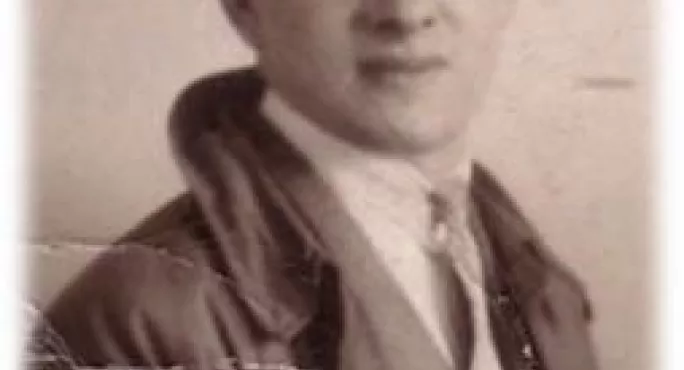- Home
- ‘The lost education of old generations must inspire us’
‘The lost education of old generations must inspire us’

There’s a battle raging right now about education.
From Lord Adonis to Lord Blunkett to Toby Young and beyond, there are complaints that schools aren’t getting their act together quick enough and children are missing out.
It’s as if we haven’t spent the past 10 weeks hunched over laptops, planning, delivering and recording lessons; giving feedback, sending emails, making calls and holding Teams meetings about how we can provide the best education possible.
But we have.
And we do all this not just because we have to - but because we understand the transformational power of learning.
Coronavirus school closures: family fortunes
I come from a long line of clever, capable and underqualified people.
My grandmothers on both sides, who took every Monday off to help with washday, still managed to read - and quote passages by heart from - all the books and plays and poetry that now feature on an English literature undergraduate’s reading list.
And then there’s my granda. Whenever I think “what’s the bloody point?” I think of him.
He was born in 1912 in Stepps, just outside Glasgow, to a family of itinerant miners. His dad at 19 was already a heavy drinker.
Thomas Gillespie - known as Tam (pictured above) - was the eldest of five and, as the family travelled to wherever there was work, his school life was frequently disrupted.
The notion of “every child matters” was a very long way off in the future. New pupils were not particularly welcome; the tawse was in regular use - for talking, for fidgeting, for not understanding - for children as little as 5.
Tam’s experience of school was intermittent and brutal.
By the time he was 12 - that’s a Year 7 in modern currency - he working down the pits with his dad.
Initially, he worked with the pit ponies but went on to become a fireman.
A colliery fireman didn’t put fires out; he was responsible for calculating the exact amount of dynamite needed to blow the coal seams open. An ounce or two the wrong way could be disastrous.
A successful fireman had to able to do maths, take care, be reliable.
A bright young lad like Tam would be just the ticket. Still, conditions in the pit were at worst deadly, at best grim. It was hard work and not well paid.
A rich tapestry of intelligence
However, despite lacking what we now see as a proper education, Tam was a resourceful and deeply intelligent man.
He taught himself to paint in oils and his paintings were exhibited. He learned to play the banjo-ukulele (maybe not so groovy now - but it was all the rage in 1930), and built anything from crystal radio sets to boats.
He had a workshop under the house where he made stuff, mended stuff, accidentally electrocuted himself and tinkered about with wire and screws and engines.
Whatever was broken, no matter how catastrophically, my granny would say “your granda’ll sort it” - and he did.
Poor health meant he had to leave the pits and after the war he became a mechanic and worked as a technician on Formula Three racing cars alongside the likes of Jackie Stewart.
He could accurately diagnose what was wrong with your car if you made the noise down the phone. When we were little, my brother and I particularly enjoyed hearing those phone calls between him and my mum.
A life cut short
When Tam died - well before his time in 1975 - he was building an early home-made computer using magazines and Eye Spy books as a guide.
He was not unique.
My guess is that many of us have parents and grandparents who missed out on formal education but who had rich cultural lives; they had productive, challenging, ingenious pastimes which, today, would have provided them with a career.
But this is not an argument for discovery learning; far from it.
If Tam and his contemporaries could do all this under their own steam, what could they have done with an extended formal education? What could they have made of the opportunities we offer our students?
Why education matters
Isn’t this the point of compulsory education? To allow every human being to have the chance to flourish?
Poverty and gruelling labour take their toll. I have no doubt that my granda’s death at the age of 62 was brought on prematurely due to the harsh start he had in life.
I also have no doubt that had he born half a century later, he’d have completed his education.
He’d have had the opportunity to go to university, to have had a better paid job, perhaps to travel.
Thinking of this has made it even more heartening to hear from students who can’t wait to get back to school on Monday.
I’m still nervous, but whatever happens, it’s happening because our profession wants the best for the children we educate, and because, like Tam before them, they want to learn.
The difference is they have the opportunity to do so, if we deliver.
Sarah Ledger has been teaching English for 33 years. She tweets as @sezl
Keep reading for just £1 per month
You've reached your limit of free articles this month. Subscribe for £1 per month for three months and get:
- Unlimited access to all Tes magazine content
- Exclusive subscriber-only stories
- Award-winning email newsletters



